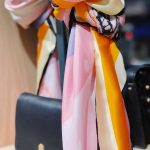In the ever-evolving world of fashion, the movement toward sustainability is more than a fleeting trend; it has become a defining factor for brands seeking longevity and consumer trust. As the emphasis on sustainable practices grows, the UK stands out as a beacon of innovation and ethical production. Brands are not only reshaping their clothing lines but also their entire business models to adapt to the changing demands of the market. This article explores the leading sustainable fashion brands that are setting trends and reshaping the industry landscape in the UK.
The Rise of Eco-Conscious Brands
The fashion industry has long been criticized for its environmental impact and resource-intensive production methods. However, a new wave of eco-conscious brands is redefining what fashion means in the UK. These companies are not only committed to reducing waste but also to utilizing organic materials and minimizing their carbon footprint. By prioritizing ethical production and sustainability, these brands are appealing to increasingly aware consumers who value mindful consumption over fast fashion.
Additional reading : How do I identify my personal style and reflect it in my clothing?
Key players in this movement have embraced a holistic approach, integrating environmental and social responsibility into their practices. Leading the charge is Stella McCartney, a brand synonymous with sustainable luxury. Known for its commitment to vegan materials and zero waste, Stella McCartney’s impact on the industry is undeniable.
Another noteworthy brand is People Tree, a pioneer in the sustainable fashion movement. Their commitment to fair trade practices and use of eco-friendly fabrics underscores their dedication to ethical fashion. People Tree’s clothing lines are vibrant, stylish, and tell a story of change and responsibility.
Have you seen this : What are the key items to include for a professional yet stylish work outfit?
As these brands gain traction, they not only challenge traditional fashion norms but also inspire others in the industry to follow suit. By setting a high standard for sustainability, they are paving the way for a new era of fashion that prioritizes the planet and people.
Innovative Materials and Techniques
The shift towards sustainability is also evident in the innovative use of materials and production techniques. Sustainable fashion brands in the UK are embracing revolutionary fabrics and methods that minimize environmental impact and promote a more circular economy.
One such material making waves is Econyl, a regenerated nylon made from waste products like old fishing nets and fabric scraps. Brands like Rapanui are leading the way by incorporating Econyl into their clothing lines, creating stylish yet sustainable pieces that are both durable and eco-friendly.
Another standout material is Tencel, derived from sustainably sourced wood pulp. Known for its softness and breathability, Tencel is a favorite among brands like Thought, which combines it with organic cotton and recycled polyester to create versatile and sustainable fashion pieces.
Moreover, the brand Finisterre is pioneering the use of innovative techniques such as seaweed dyeing and biodegradable packaging. Their commitment to reducing textile waste and promoting recyclable materials has positioned them as a leader in the sustainable fashion arena.
By investing in cutting-edge materials and production methods, these UK brands are not only reducing their environmental footprint but also setting a precedent for others to follow. Their commitment to sustainability goes beyond words, showcasing the potential of innovation in creating a more responsible and resilient fashion industry.
Consumer Demand and Market Impact
The demand for sustainable fashion is not only shaping brand strategies but also transforming the market landscape. Consumers today are more informed and conscious of the impact their decisions have on the environment. This shift in consumer behavior has prompted brands to prioritize sustainability as a core element of their identity.
According to recent studies, over 60% of UK consumers consider environmental impact when making fashion purchases. This statistic highlights the growing importance of sustainability in the decision-making process, urging brands to innovate and adapt to meet these expectations.
As sustainable practices become a key selling point, brands that fail to incorporate them risk losing relevance in the competitive market. The success of brands like Patagonia and Reformation demonstrates that a commitment to sustainability can drive not only consumer loyalty but also business growth.
Moreover, this consumer-driven demand is influencing industry giants, prompting collaborations with sustainable brands and the incorporation of eco-friendly lines into their portfolios. This symbiotic relationship between consumers and brands is reshaping the market, fostering an environment where sustainability is not just an option but a standard.
For businesses, the path forward is clear: embrace sustainability or risk obsolescence. By aligning with consumer values and prioritizing ethical practices, brands can secure their place in a market increasingly defined by its commitment to the planet.
The Future of Sustainable Fashion in the UK
As we look towards the future, the trajectory of sustainable fashion in the UK appears promising and pivotal. Innovations in materials, evolving consumer expectations, and a growing awareness of environmental challenges are set to redefine the industry.
The UK’s sustainable fashion sector is likely to witness a rise in circular fashion models, emphasizing repair, upcycling, and resale. Brands like Depop and Thrift+ are already capitalizing on this trend, offering platforms for consumers to buy and sell preloved fashion items, thereby extending the lifecycle of clothing and reducing waste.
Furthermore, technological advancements in supply chain transparency will play a crucial role in shaping the future of sustainable fashion. With tools like blockchain, consumers will be able to trace the journey of their garments, ensuring ethical and sustainable practices at every stage.
Policies and regulations are also expected to evolve, with governments and industry bodies working towards stricter standards for sustainable production and waste management. Such measures will likely encourage more brands to adopt eco-friendly practices, aligning with national and global sustainability goals.
In conclusion, the future of sustainable fashion in the UK is set to be marked by ingenuity, responsibility, and a collective effort towards a sustainable and ethical industry. By continuing to innovate and adapt, UK brands are poised to lead the global charge in redefining fashion for a better tomorrow.
Sustainable fashion in the UK is more than a movement; it is a transformation of the industry’s core values and practices. As brands continue to innovate and lead by example, they are setting new standards that prioritize ethical production, eco-friendly materials, and consumer responsibility. This shift not only benefits the environment but also enriches the fashion industry by promoting creativity and sustainable growth.
The journey towards sustainability is ongoing, driven by passionate brands, informed consumers, and evolving market dynamics. As the UK continues to be a trailblazer in sustainable fashion, we, as consumers and part of the industry, hold the key to supporting and nurturing these efforts. By choosing to engage with and support sustainable brands, we contribute to a brighter and more sustainable future for fashion.











